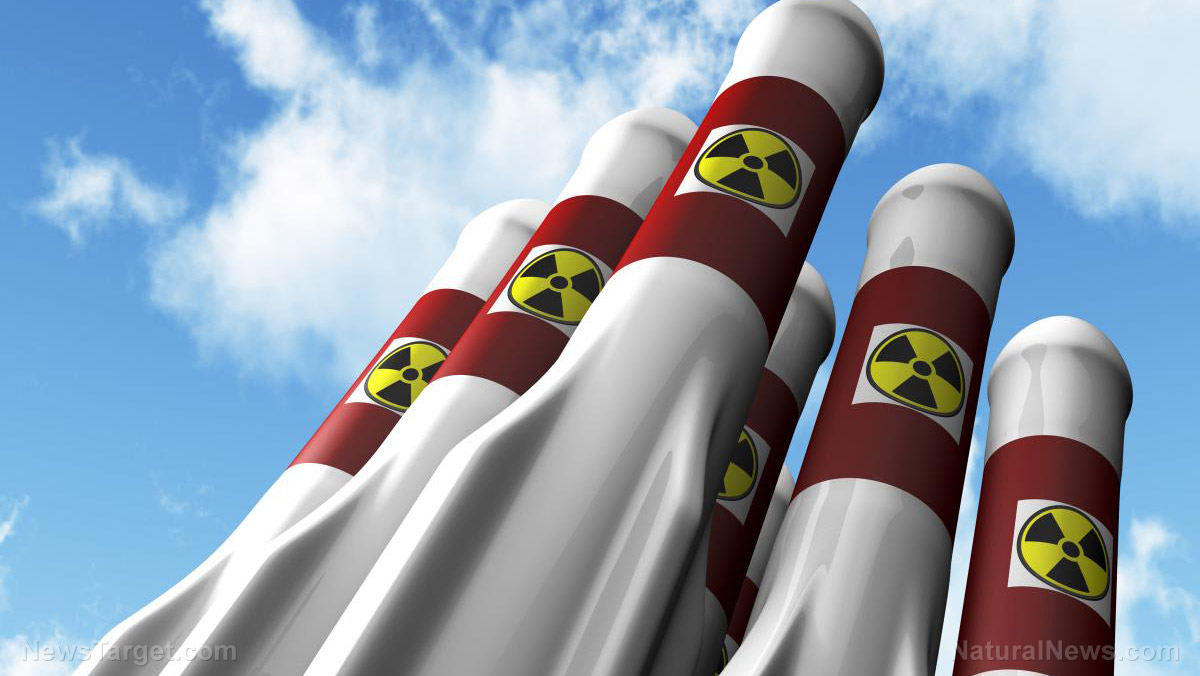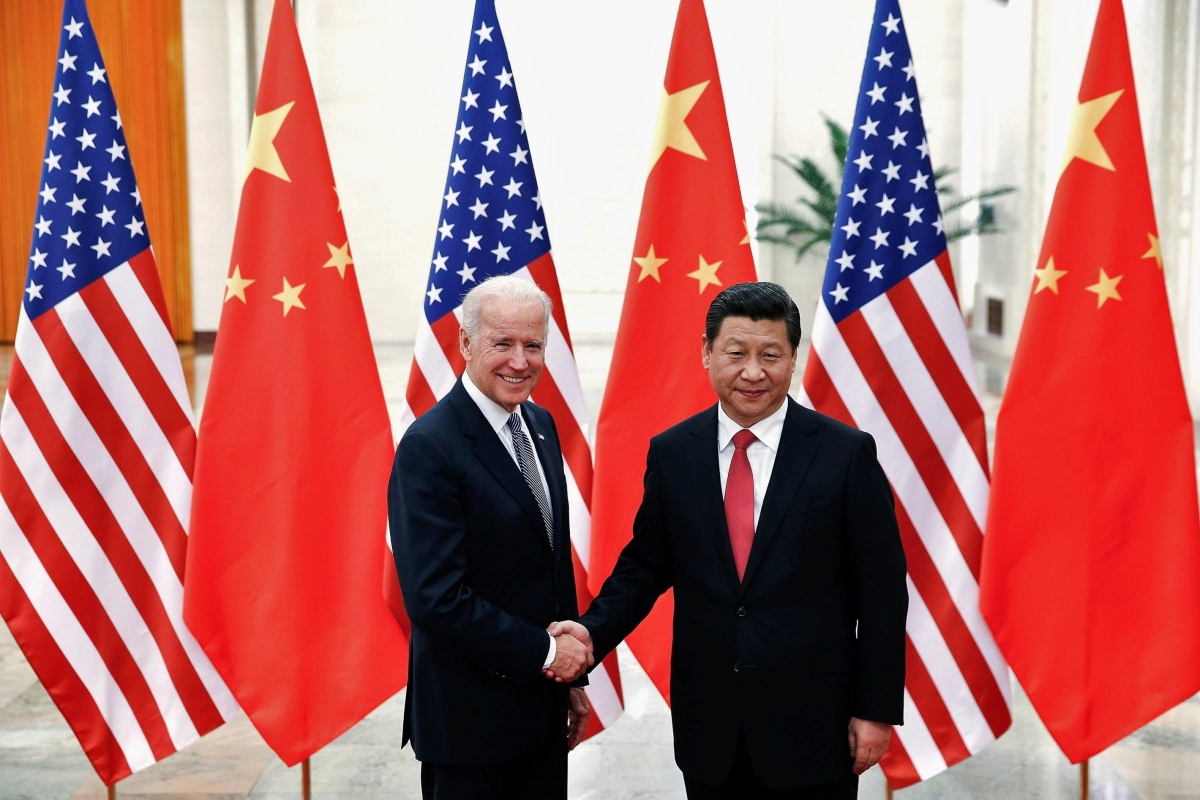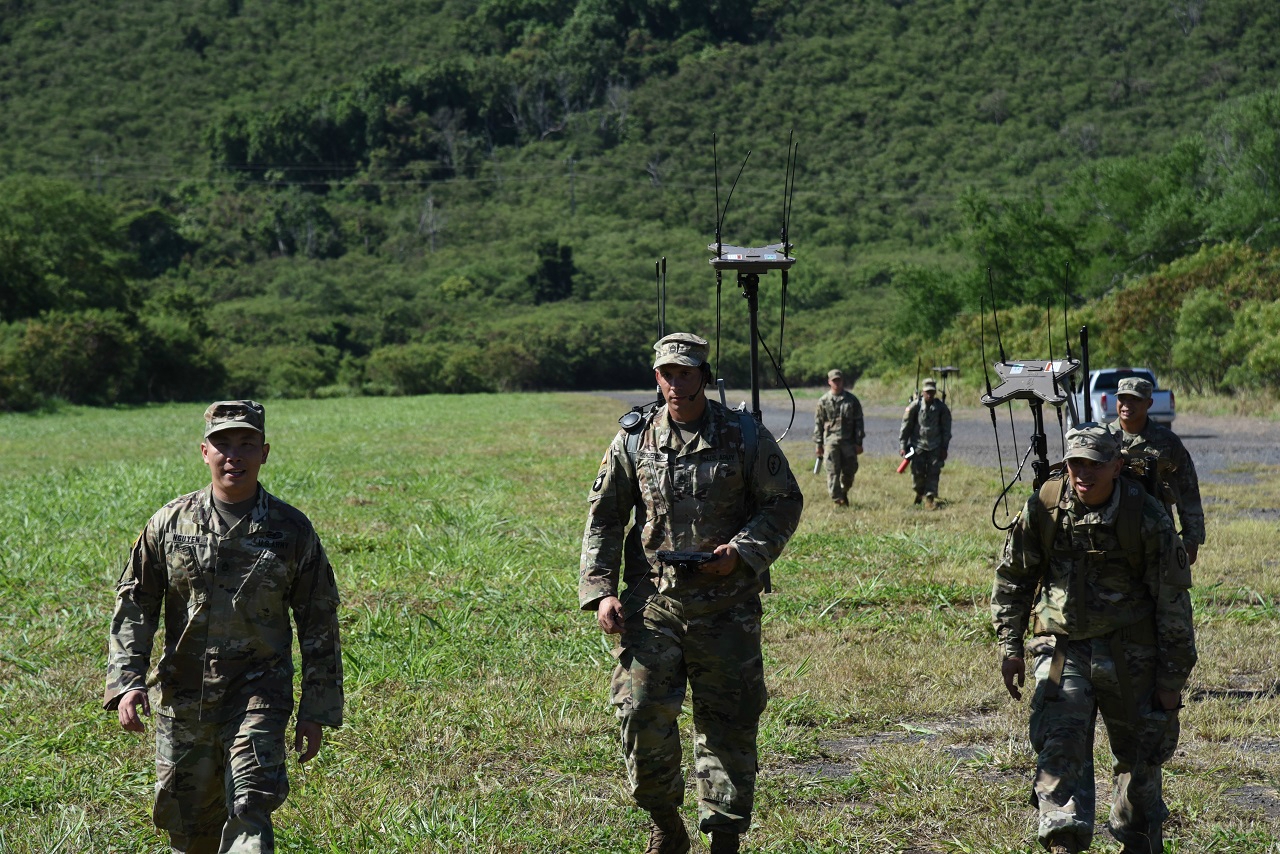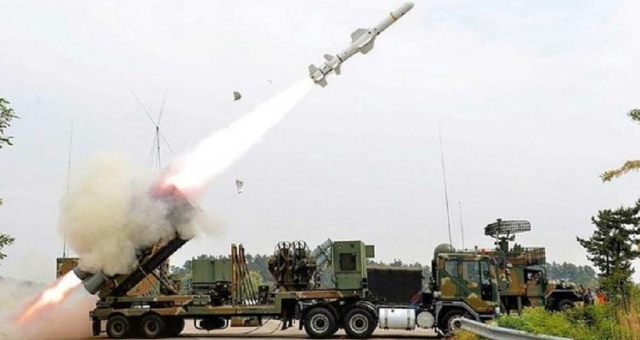China begins its largest-ever expansion of nuclear arsenal
04/28/2023 / By Arsenio Toledo

China has begun its largest-ever period of expansion of its nuclear arsenal, as it looks for ways to modernize its atomic deterrents to prevent future conflicts with the United States.
According to the Stockholm International Peace Research Institute in Sweden, China’s current stockpile of nuclear weapons is estimated to be around 350 nuclear warheads.
While this is relatively small compared to the nuclear arsenals of Russia and the United States – 5,977 and 5,428 estimated warheads, respectively – this is still large enough to make China’s arsenal the third-largest nuclear weapons stockpile in the world. (Related: China may have already deployed unstoppable hypersonic missiles capable of targeting American bases in the Pacific.)
To make matters worse, China’s nuclear arsenal is growing fast and the Department of Defense estimates that the communist nation could more than quadruple the size of its arsenal to have over 1,500 warheads by 2035.
“China is undertaking the most significant expansion and modernization of its nuclear forces in the country’s history,” said David Logan, an assistant professor at the Naval War College in Rhode Island.
The Pentagon noted in its analysis that this involves not only ramping up the production of existing kinds of warheads, but also upgrading the People’s Liberation Army’s – China’s armed forces – ability to deliver them with what is known as the nuclear triad: missiles, aircraft and submarines.
The Pentagon said China is rapidly building launch facilities for its intercontinental ballistic missile fleet, with more than 300 silos already being built.
U.S. nuclear strategy has long focused on deterring Russia. Once China completes its rapid buildup, Eric Heginbothman, principal research scientist for the MIT Center for International Studies, noted that this will be the first time in history that the major nuclear powers of the world will need to consider not just one potential nuclear competitor. This massive change will have major implications for nuclear planning and stability everywhere.
“The changes that are taking place or underway are very significant … [and] will turn China from a state that has a nuclear retaliatory capability to one that is the world’s just major nuclear powers,” said Heginbotham.
US urged to modernize and expand its own nuclear arsenal
China has not shown any interest in engaging in arms control talks with the U.S. or any other actor in the international community.
With any diplomatic means of controlling the expansion of China’s nuclear arsenal dead in the water, experts and analysts in the U.S. are now presenting a variety of proposals for the country to respond, all of which revolve around the U.S. modernizing and potentially expanding its own nuclear arsenal to cope with the increased threat.
“This new problem compels a broad rethinking of the assumptions of U.S. nuclear policy and of the deterrence practices of the United States,” wrote researchers from the Lawrence Livermore National Laboratory (LLNL), a federally funded research and development center.
Some of the proposals, which the research center noted have widespread bipartisan support, have already been implemented. These include programs to modernize the nation’s nuclear triad by certifying the F-35 Lightning II stealth fighter to be a dual-capable aircraft – meaning it can carry conventional and nuclear weapons – by 2024.
The Pentagon is also making sure to field a significant number of the still-in-development B-21 Raider stealth strategic bombers, all of which will be able to carry nuclear warheads.
Finally, the Pentagon is also working to replace its aging stockpile of Minutemen III intercontinental ballistic missiles with the new LGM-35 Sentinel missiles.
But the LLNL’s proposal suggests additional steps, including massively increasing the number of U.S. nuclear forces to strengthen the country’s deterrent capabilities and, in case of an attack, boost America’s chances of surviving such a deadly nuclear strike.
The researchers have also proposed other programs that the administration of President Joe Biden has already shut down, such as fielding a flotilla of attack submarines with sea-launched nuclear missiles and exploring a smaller, mobile variant of the Sentinel missiles in case of direct strikes against missile silos.
Learn more about the expansion of nuclear arsenals around the world at NuclearWeapons.news.
Watch this episode of the “Health Ranger Report” as Mike Adams, the Health Ranger, interviews former United Nations nuclear weapons inspector Scott Ritter about Russia’s advanced and unstoppable nuclear arsenal.
This video is from the Health Ranger Report channel on Brighteon.com.
More related stories:
Russian, Chinese nuclear arsenals have been upgraded in race to dominance over outdated US ICBMs.
STRATCOM report reveals China has a larger nuclear ICBM arsenal than the US.
FEMA map shows areas most at risk of being targeted by nuclear warheads in a war.
Chinese spy balloon that flew over Montana could be used to carry EMP or nuclear weapons.
Sources include:
Submit a correction >>
Tagged Under:
big government, chaos, China, collapse, dangerous, military tech, national security, nuclear, nuclear arsenal, nuclear deterrence, nuclear triad, nuclear war, nuclear weapons, panic, preparedness, weapons technology, World War III
This article may contain statements that reflect the opinion of the author
RECENT NEWS & ARTICLES
COPYRIGHT © 2020 CommunistChina.News
All content posted on this site is protected under Free Speech. CommunistChina.News is not responsible for content written by contributing authors. The information on this site is provided for educational and entertainment purposes only. It is not intended as a substitute for professional advice of any kind. CommunistChina.News assumes no responsibility for the use or misuse of this material. All trademarks, registered trademarks and service marks mentioned on this site are the property of their respective owners.




















